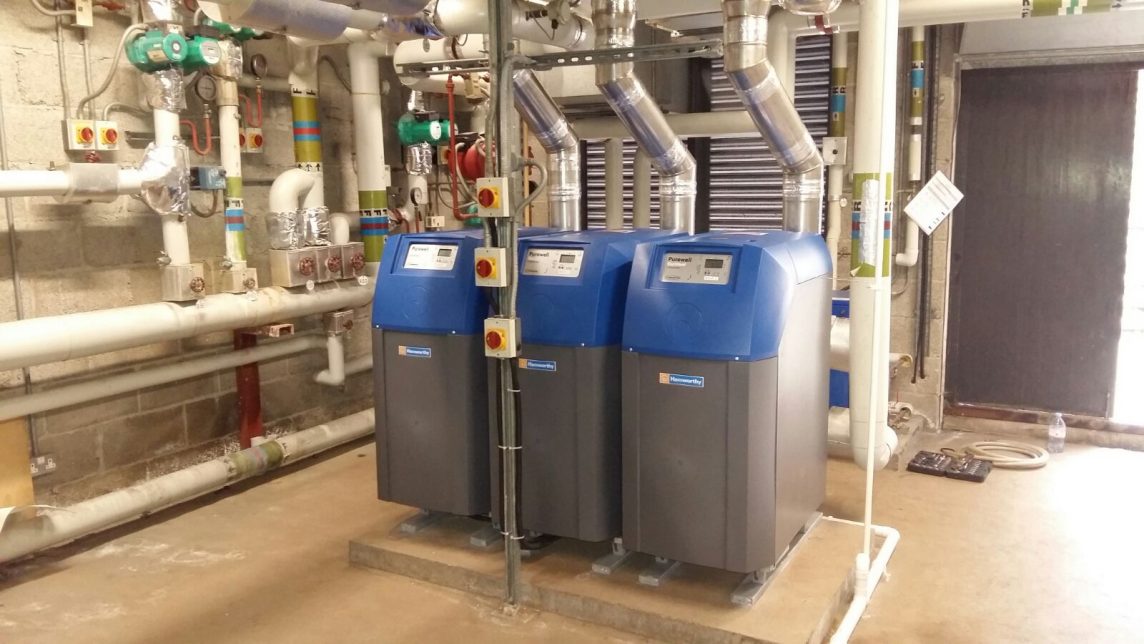Did you know that Britain currently has the world’s third-largest boiler market? Even with the rising popularity of heat pumps and alternative heating solutions, there are still over 26 million boilers installed across the country. And among those boilers, any with a power rating of 70 kilowatts are considered ‘commercial’ boilers. Commercial boilers may be slowly phasing out, but that doesn’t mean you can ignore the maintenance requirements that come with them. We deal with commercial boilers on a day-to-day basis, so we’re going to share with you some best practices for keeping them in shape, and what warning signs you need to look out for.
What’s The Lifespan Of A Commercial Boiler?
All boilers are slightly different, but if you do the right maintenance and preventative care, your commercial boiler should last you anywhere from 10-15 years. Check with your manufacturer for the exact lifespan of your boiler.
Sadly this often isn’t the case, as it’s common for facilities managers to ignore the boiler when it is working, and only pay attention to it when something is going wrong. By this point, there have likely been smaller issues building up, causing damage that can cut down the lifespan of the boiler. That’s why regular and preventative maintenance, plus regular servicing can significantly increase the boiler lifespan and prevent faults from happening in the first place.
How Often Should A Commercial Boiler Be Serviced?
As a general rule, commercial boilers should be serviced every year, or even twice a year if they are getting old. Because commercial boilers experience much heavier use than household models, they are very prone to wear and tear which can cause all sorts of problems in the long term. Regular servicing helps stay on top of these issues and keep the boiler working smoothly for longer.
On top of that, many commercial insurance policies require a commercial boiler to be serviced every 12 months to maintain valid cover. If you need to make a claim and you haven’t been taking care of your boiler, you could risk missing a payout. All boiler services should be done by a qualified engineer who can provide you with all the documentation you need after each service. This means you can always prove that your boiler has been serviced, and have a reference date for its next check-up.
Warning Signs Of A Faulty Commercial Boiler
Since commercial boilers are such an integral part of your building systems, it’s important to know the warning signs if they need attention. Below are a few examples of warning signs for commercial boilers, so that you know when it’s time to call an engineer.
Higher Fuel Bills: We know that fuel prices have skyrocketed recently, and while they are slowly starting to level out they will be higher for a little while. But if you look at your fuel bill and think it’s extortionately high, it’s worth checking your boiler to make sure it’s working properly. When boilers are working inefficiently they use more fuel, which will increase your fuel bill.
Cold Premises: No one likes working in the cold, especially at this time of year. If your premises are still cold even after the boiler is running, you need to get it checked. Especially if you go around the property and find that all radiators and pipes are warming up to the same temperature at the same time – this is a sure-fire sign that something is wrong with the boiler.
Unusual Noises or Smells: Boilers all make noise when they work, but the gentle humming should not be distracting or overly loud. If you can hear clunking, ticking or whirring sounds coming from your boiler at any time, you need to get an engineer on site as soon as possible. The same goes for odd smells coming from the boiler, as this could be a sign of a leak and potentially incredibly dangerous.
If you don’t know where to start when it comes to your boiler, we’re here to help. At Bonus Eventus Maintenance we specialise in the maintenance and repair of HVAC systems, including boilers of all shapes and sizes. To find out more, or book your boiler services today, just get in touch with the team here.

